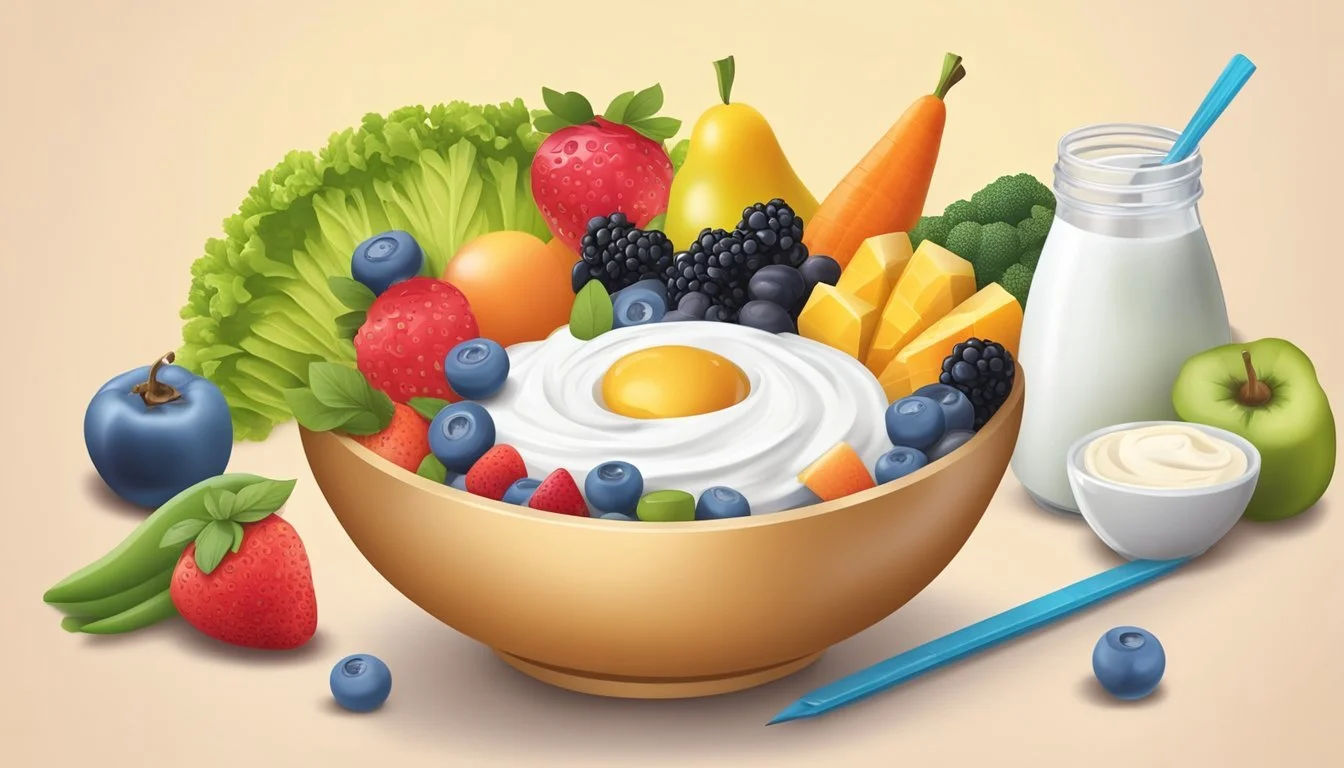Power Foods to Fuel Your Child's Growth and Development
Ensuring that children receive proper nutrition is crucial for their overall growth and development. A well-balanced diet rich in essential nutrients such as proteins, vitamins, and minerals plays a significant role in helping children achieve their maximum growth potential. Understanding which foods contribute to growth can empower parents to make better dietary choices for their children, fostering healthy development.
A variety of foods can aid in enhancing a child's growth. From dairy products and lean meats to fruits and vegetables, these foods provide the necessary nutrients that support bone development, muscle growth, and overall health. Incorporating these food items into daily meals can set the foundation for a strong, healthy, and growing child.
1) Salmon
Salmon is a nutrient-rich fish that can significantly aid in child growth. It is a rich source of high-quality protein, which is essential for building and repairing tissues.
This fish is also packed with omega-3 fatty acids, particularly DHA, which plays a crucial role in brain development and function. Including salmon in a child’s diet can help improve cognitive skills and memory.
Moreover, salmon provides important vitamins and minerals such as vitamin D and B vitamins. Vitamin D helps in the absorption of calcium, promoting healthy bone development. B vitamins contribute to overall energy levels, which are necessary for active and growing children.
Salmon's mild flavor and versatile preparation methods make it easy to incorporate into various meals. Whether grilled, baked, or included in salads, salmon can be a tasty and effective way to boost a child's growth potential.
2) Greek Yogurt
Greek yogurt is a nutrient-dense food that supports child growth. It is rich in protein, essential for muscle development and overall growth. Each serving typically contains 15 to 20 grams of protein, making it an excellent choice for maintaining optimal bone and muscle health.
Besides protein, Greek yogurt is also high in calcium. Calcium is crucial for developing strong bones and teeth, and children need adequate amounts during their growth years. A serving of Greek yogurt can provide a significant portion of the recommended daily intake for kids.
Greek yogurt is also beneficial due to its lower sugar content compared to regular yogurt. This makes it a healthier option for children who may be sensitive to high sugar levels.
Additionally, Greek yogurt contains other essential nutrients like vitamin B12 and vitamin A, which play a role in various bodily functions. These vitamins contribute to a child’s overall health and well-being.
3) Spinach
Spinach is a leafy green vegetable renowned for its rich nutritional profile. It contains high levels of essential vitamins and minerals, which are crucial for a child's growth. Packed with vitamins A, C, K, and folate, spinach supports bone health, immune function, and overall development.
Calcium and magnesium found in spinach are important for bone strength and density. These minerals contribute to the proper formation and maintenance of a child's skeletal system. Including spinach in a child's diet can help them reach their full potential height.
Additionally, spinach is an excellent source of iron. Iron is vital for the production of red blood cells, which carry oxygen throughout the body. Adequate iron levels are essential for energy levels and cognitive development, ensuring that children stay active and focused.
Spinach also provides dietary fiber, promoting healthy digestion. Good digestive health can enhance nutrient absorption, making the vitamins and minerals in their diet more effective.
Incorporating spinach into meals can be easy. It can be added to smoothies, soups, salads, or served as a side dish. Its versatility and nutrient density make it a valuable addition to a child's diet to support their growth and overall health.
4) Eggs
Eggs are a powerhouse of nutrition, essential for child growth. Rich in protein, vitamins, and minerals, they support the development of muscles and tissues. In particular, the protein found in eggs helps repair and build body tissues, making it a crucial element for overall development.
Each egg contains important vitamins like Vitamin D, which aids in bone health by helping the body absorb calcium. Healthier bones contribute to a child's height potential and overall physical strength. Additionally, eggs are a good source of vitamin B12, which plays a role in cell growth and development.
Eggs also provide essential minerals like iron, important for preventing anemia and ensuring the distribution of oxygen throughout the body. With higher energy levels, children can engage more actively in physical activities, further promoting growth.
The versatility of eggs makes them easy to incorporate into a child's diet. They can be boiled, scrambled, poached, or used in various recipes. Regular consumption of eggs can address nutrient deficiencies that otherwise may hinder a child's growth and development.
5) Carrots
Carrots are a popular root vegetable known for their vibrant orange color and sweet flavor. They are packed with essential nutrients that contribute to child growth and development. Key nutrients found in carrots include vitamin A, potassium, and antioxidants.
Vitamin A plays a crucial role in maintaining healthy vision, skin, and immune function. This vitamin also promotes proper growth by supporting cell division and development. Carrots are one of the richest sources of beta-carotene, which the body converts into vitamin A.
Potassium is another important nutrient present in carrots. It helps in maintaining proper fluid balance, nerve signals, and muscle contractions. This is vital for active children who need to stay hydrated and have functional, responsive muscles.
Antioxidants in carrots, such as beta-carotene, protect the body from harmful free radicals. This protection supports overall health and proper development in growing children. Including a variety of vegetables in a child's diet ensures they receive a broad spectrum of nutrients.
Incorporating carrots into meals is easy and versatile. They can be eaten raw as snacks, cooked in stews, or even juiced. By regularly including carrots in their diet, children can benefit from their numerous growth-promoting properties.
6) Oatmeal
Oatmeal is a highly nutritious food that can support a child's growth. Rich in dietary fiber, protein, and essential vitamins like B-vitamins, it provides sustained energy throughout the day.
Containing complex carbohydrates, oatmeal aids in maintaining stable blood sugar levels. This steady release of energy is crucial for physical activities and cognitive functions in children.
Oatmeal is also a good source of iron and magnesium. Iron is essential for healthy blood cells, while magnesium supports bone health and muscle function, both important for overall development.
Parents can easily incorporate oatmeal into their child's diet. It can be served with fruits, nuts, or even a tablespoon of honey to enhance its taste and nutritional value.
7) Lean Beef
Lean beef plays a critical role in child growth due to its rich nutrient profile. It provides high-quality protein, which is essential for muscle development and repair. This source of protein is particularly important for growing children as it supports their overall physical development.
Iron found in lean beef is vital for cognitive function and brain development. Children with adequate iron levels often have better concentration and learning abilities. Iron deficiency, on the other hand, can lead to anemia, which negatively impacts a child's growth and academic performance.
Zinc in lean beef contributes to immune system health and cellular growth. It helps in maintaining a child's energy levels and overall vitality. Adequate zinc intake is also linked to improved wound healing and resistance to infections.
Lean beef also contains other important nutrients like vitamin B12 and choline. These nutrients support nerve function and brain health. They are essential for memory, focus, and attention in children, making lean beef a valuable addition to their diet.
Incorporating lean beef into a child's diet can be done in various ways such as lean beef stir-fries, grilled burgers, or wholesome stews. These options provide a tasty and nutritious way for children to enjoy the benefits of this protein source.
8) Almonds
Almonds are a rich source of essential nutrients that can support child growth. They contain vitamins, minerals, and healthy fats that aid in developing bones and increasing height.
These nuts are packed with vitamin E, which plays a crucial role in bone development. Magnesium and manganese, also found in almonds, help maintain bone strength and structure.
Regular consumption of almonds can inhibit the growth of osteoclasts, cells responsible for breaking down bone tissue. This promotes stronger and healthier bones in children.
Almonds are easy to incorporate into a child's diet. They can be eaten raw, added to cereals, or included in meals and snacks. This flexibility makes it simple to ensure children receive their nutritional benefits.
Including almonds in a balanced diet, combined with other growth-promoting foods, can contribute significantly to a child's overall growth and development. Enthusiastic about nuts, children will enjoy both the taste and the health benefits almonds offer.
9) Broccoli
Broccoli is a nutrient-dense vegetable that plays a vital role in child growth. Rich in vitamins and minerals, this cruciferous vegetable offers significant amounts of vitamin C, vitamin K, and potassium. These nutrients contribute to bone health and immune function.
Additionally, broccoli contains dietary fiber, which aids in digestion. Better digestion ensures that children can absorb nutrients more efficiently.
The vegetable also has a decent amount of protein for a plant-based source. Protein is essential for muscle development and growth in children.
Broccoli can be included in various meals, making it a versatile addition to a child's diet. It can be steamed, roasted, or even incorporated into soups and casseroles.
10) Blueberries
Blueberries are a nutritious addition to a child's diet. Packed with antioxidants, they help protect against DNA damage and support overall cell health. Regular consumption may assist in reducing the risk of certain diseases.
These small berries are also rich in vitamins C and K, critical for bone health and immune function. Including blueberries in meals can contribute to stronger bones.
Blueberries can positively influence mood and behavior. Some studies suggest that their antioxidant content helps regulate emotions and promotes a positive outlook in children.
Incorporating blueberries is simple. They can be added to cereals, yogurts, or eaten fresh. Their sweet taste makes them a favorite among kids, ensuring they enjoy the health benefits they provide.
Key Nutrients for Child Growth
Proper nutrition plays a crucial role in ensuring your child reaches their full growth potential. Essential nutrients such as proteins, vitamins, and minerals are imperative for healthy development.
Proteins
Proteins are vital for the growth of tissues, muscles, and bones. They serve as the building blocks of the body and contribute to height increases and muscle development. Foods high in protein include:
Lean meats: Chicken, turkey, and red meat.
Fish: Rich in omega-3 fatty acids, which support overall growth.
Eggs: Packed with high-quality protein and vitamins.
Dairy products: Milk, cheese, and yogurt.
Legumes and nuts: Beans, lentils, almonds, and peanuts.
Protein-rich foods should be included in every meal to promote optimal growth.
Vitamins and Minerals
Vitamins and minerals are integral to child growth, assisting in bone development, circulatory health, and immune function. Key nutrients include:
Calcium: Found in dairy products, leafy greens, and fortified cereals. Essential for bone strength.
Vitamin D: Needed for calcium absorption. Sources include fortified milk and sunlight.
Iron: Supports oxygen transport in the blood. Found in meat, beans, and spinach.
Vitamin C: Aids in collagen production for connective tissues. Citrus fruits and strawberries are rich in this vitamin.
Magnesium and Phosphorus: Present in nuts, seeds, and dairy, these minerals play a role in bone development.
Ensuring a varied diet that includes these essential vitamins and minerals can significantly bolster a child’s growth and overall health.
Role of Balanced Diet in Development
A balanced diet is crucial for children as it supports both cognitive growth and the development of bones and muscles. Proper nutrition ensures that children's bodies and minds develop to their full potential.
Cognitive Growth
Adequate nutrition plays a pivotal role in the development of a child's brain. Proteins are essential as they are the building blocks for neurotransmitters, which aid in brain function. Sources like lean meats, beans, and dairy can significantly impact neural growth and cognitive development.
Fatty acids found in fish such as salmon are vital for brain health. Omega-3 fatty acids support cognitive functions like memory and learning. Additionally, vitamins like B-complex and minerals like iron and zinc are crucial.
Iron deficiency, for instance, can lead to impaired cognitive development and reduced attention spans. Therefore, incorporating foods rich in iron, such as spinach and red meat, is essential. Similarly, whole grains provide a steady supply of glucose, which is the primary energy source for the brain.
Bone and Muscle Development
Proper bone and muscle development requires a diet rich in calcium and vitamin D. Dairy products like milk, cheese, and yogurt are excellent sources of calcium. Calcium strengthens bones and teeth, reducing the risk of fractures and dental issues.
For muscle development, a substantial amount of protein is necessary. Foods such as chicken, eggs, and legumes provide the required amino acids for muscle repair and growth.
Vitamin D, which can be found in fortified foods and through sun exposure, helps in the absorption of calcium, making it a crucial nutrient for maintaining bone health. Additionally, magnesium and phosphorus found in nuts, seeds, and leafy greens, play supportive roles in bone and muscle health.
Ensuring children receive a balanced diet with adequate amounts of these nutrients promotes robust physical development and prepares their bodies for the challenges of growth.
How Nutrition Affects Immunity
Nutrition plays a critical role in maintaining and enhancing the immune system. Proper intake of essential nutrients supports the body's ability to fend off infections and diseases.
Vitamins and Minerals: Vitamins such as A, C, D, and E are essential for immune function. Minerals like zinc and selenium also contribute significantly.
Vitamin C: Found in citrus fruits, it boosts white blood cell production.
Vitamin D: Found in fatty fish and fortified dairy, it helps modulate the immune response.
Antioxidants: These protect cells from damage by free radicals. Key antioxidants include vitamins C and E, beta-carotene, and selenium.
Sources: Fruits, vegetables, nuts, and seeds.
Proteins: Proteins are vital for the creation of antibodies and immune cells.
Sources: Eggs, lean meats, beans, and legumes.
Balanced Diet: A diet rich in fruits, vegetables, whole grains, and lean proteins supports overall immune health.
Healthy Fats: Omega-3 fatty acids found in fish and flaxseeds reduce inflammation.
Regular intake of these nutrients ensures the immune system operates efficiently. Consistent nutrient support is necessary for a robust defense against illnesses and for recovery when one is sick.




